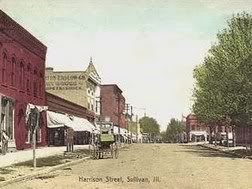Congress Honors Victims of 1963 Bombing
Congress has formally commemorated the four young black girls, Addie Mae Collins, Denise McNair, Carole Robertson, and Cynthia Wesley, who died in the 1963 bombing of Sixteenth Street Baptist Church in Birmingham, Ala.
The Sixteenth Street Baptist Church of Birmingham, Alabama was constructed in 1911 and served as a center for African-American life in the city and a rallying point for the civil rights movement during the 1960s. On Sunday, September 15, 1963, segregationists protesting the mandatory integration of Birmingham's public schools firebombed the Sixteenth Street Baptist Church. The blast killed Addie Mae Collins, age 14, Denise McNair, age 11, Carole Robertson, age 14, and Cynthia Wesley, age 14, all members of the Church, while they were preparing for Sunday service. September 15, 1963 has been called the darkest day in the history of Birmingham and one of the darkest days of the entire civil rights movement. This act of terrorism raised national and international awareness of the African-American civil rights struggle and galvanized those dedicated to the cause of civil rights.
Congress passed the Civil Rights Act of 1964 and the Voting Rights Act of 1965 in the wake of the bombing. The 4 men suspected of the bombing, Bobby Frank Cherry, Herman Cash, Thomas Blanton, and Robert Chambliss, were not immediately prosecuted because authorities believed it impossible to obtain a conviction in the heated racial climate of the mid-1960s. Alabama Attorney General Bill Baxley successfully prosecuted Robert Chambliss 13 years after the bombing. After the indictment and conviction of Robert Chambliss the bombing investigation was closed. The investigation was reopened in 1995 due to the efforts of Federal Bureau of Investigation Special Agent Rob Langford and local African-American leaders. In 2001 and 2002 a joint Federal and State task force, under the supervision of United States Attorney Douglas Jones and Alabama Attorney General William Pryor, successfully prosecuted Thomas Blanton and Bobby Frank Cherry with the assistance of State and local law enforcement personnel; and the bombing, the prosecution of the offenders, and the cause of civil rights in general have become national and international concerns.
The Sixteenth Street Baptist Church of Birmingham, Alabama was constructed in 1911 and served as a center for African-American life in the city and a rallying point for the civil rights movement during the 1960s. On Sunday, September 15, 1963, segregationists protesting the mandatory integration of Birmingham's public schools firebombed the Sixteenth Street Baptist Church. The blast killed Addie Mae Collins, age 14, Denise McNair, age 11, Carole Robertson, age 14, and Cynthia Wesley, age 14, all members of the Church, while they were preparing for Sunday service. September 15, 1963 has been called the darkest day in the history of Birmingham and one of the darkest days of the entire civil rights movement. This act of terrorism raised national and international awareness of the African-American civil rights struggle and galvanized those dedicated to the cause of civil rights.
Congress passed the Civil Rights Act of 1964 and the Voting Rights Act of 1965 in the wake of the bombing. The 4 men suspected of the bombing, Bobby Frank Cherry, Herman Cash, Thomas Blanton, and Robert Chambliss, were not immediately prosecuted because authorities believed it impossible to obtain a conviction in the heated racial climate of the mid-1960s. Alabama Attorney General Bill Baxley successfully prosecuted Robert Chambliss 13 years after the bombing. After the indictment and conviction of Robert Chambliss the bombing investigation was closed. The investigation was reopened in 1995 due to the efforts of Federal Bureau of Investigation Special Agent Rob Langford and local African-American leaders. In 2001 and 2002 a joint Federal and State task force, under the supervision of United States Attorney Douglas Jones and Alabama Attorney General William Pryor, successfully prosecuted Thomas Blanton and Bobby Frank Cherry with the assistance of State and local law enforcement personnel; and the bombing, the prosecution of the offenders, and the cause of civil rights in general have become national and international concerns.



0 Comments:
Post a Comment
<< Home